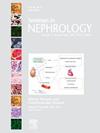传染病爆发的卫生系统准备工作:肾脏病学的相关性。
IF 2.8
3区 医学
Q2 UROLOGY & NEPHROLOGY
引用次数: 0
摘要
冠状病毒疾病(COVID-19)危机突出表明,我们亟需发展具有复原力的医疗保健系统,为应对流行病做好更充分的准备。数百万人死于 COVID-19 病毒本身,但死于医疗系统混乱的人数几乎是其三倍。肾病患者在疫情爆发和大流行期间非常脆弱,他们的需求必须纳入备灾规划。卫生系统的备灾工作不仅需要及早发现和遏制疫情,在危机期间维持关键服务,还需要增强民众的抗灾能力,确保医务人员和患者的安全。疫情爆发时的应急能力规划必须包括提供急性和慢性透析服务,并确保肾病患者能够获得药物。医疗质量不应受到影响,必要时必须进行监测和改进。远程医疗等技术可以提高医疗质量和连续性,并将感染风险降至最低。各个层面的沟通对于确保包括社区在内的所有利益相关者掌握必要信息,支持合作和协作以有效应对疫情至关重要。在大流行期间和之后,研究对于增进知识和在各个层面建立复原力非常重要,从疫情检测到治疗方法的开发,以及优化干预措施的公平获取。只有做好充分准备并建立更具复原力的卫生系统,我们作为全球社会才有希望在 COVID-19 期间吸取的惨痛教训基础上再接再厉,改进对下一次传染病爆发、流行甚至大流行的应对措施。本文章由计算机程序翻译,如有差异,请以英文原文为准。
Health Systems Preparedness for Infectious Disease Outbreaks: Relevance for Nephrology
The coronavirus disease (COVID-19) crisis glaringly highlighted the critical need to develop resilient health care systems that are better prepared for epidemics. Millions of people died from COVID-19 itself, but almost three times as many died from health system disruptions. People living with kidney disease are highly vulnerable during outbreaks and pandemics and their needs must be included in preparedness planning. Health systems preparedness requires not only early identification and containment of outbreaks and maintenance of critical services during crises, but also bolstering population resilience and ensuring the safety of both health personnel and patients. Planning for surge capacity in an outbreak must include provision for both acute and chronic dialysis, and ensure access to medications for people with kidney diseases. Quality of care should not be compromised and must be monitored and improved where necessary. Technology, such as telemedicine, can support quality and continuity of care and minimize infection risks. Communication at all levels is crucial to ensure all stakeholders, including communities, have the necessary information to support cooperation and collaboration in effective outbreak responses. Research is important during and after pandemics to improve knowledge and build resilience at all levels, from outbreak detection to the development of therapeutics and optimizing equity in access to interventions. Only with adequate preparation and more resilient health systems can we hope, as a global community, to build on the harsh lessons learned during COVID-19, and improve the response to the next infectious disease outbreak, epidemic, or even pandemic.
求助全文
通过发布文献求助,成功后即可免费获取论文全文。
去求助
来源期刊

Seminars in nephrology
医学-泌尿学与肾脏学
CiteScore
5.60
自引率
0.00%
发文量
27
审稿时长
6-12 weeks
期刊介绍:
Seminars in Nephrology is a timely source for the publication of new concepts and research findings relevant to the clinical practice of nephrology. Each issue is an organized compendium of practical information that serves as a lasting reference for nephrologists, internists and physicians in training.
 求助内容:
求助内容: 应助结果提醒方式:
应助结果提醒方式:


